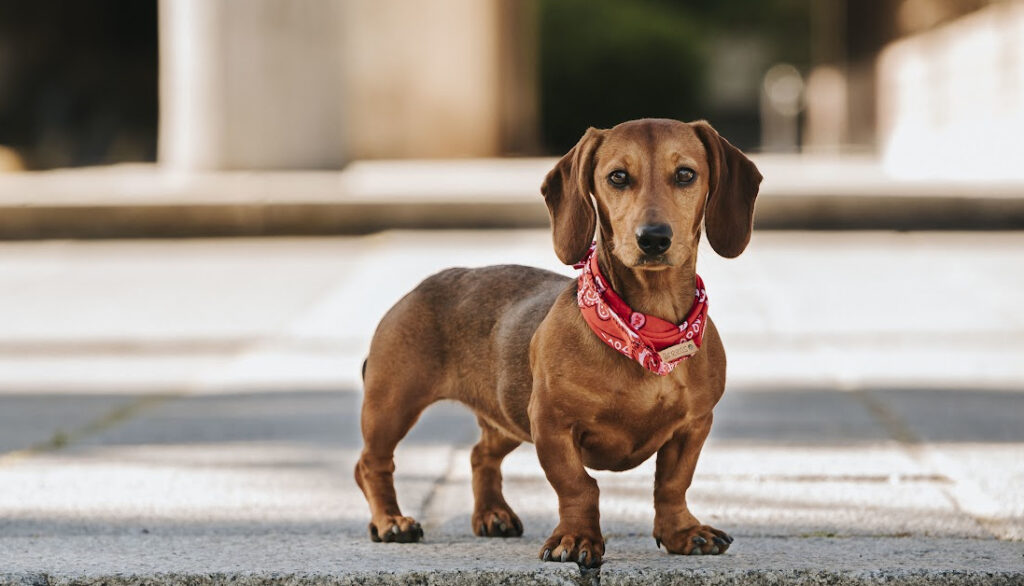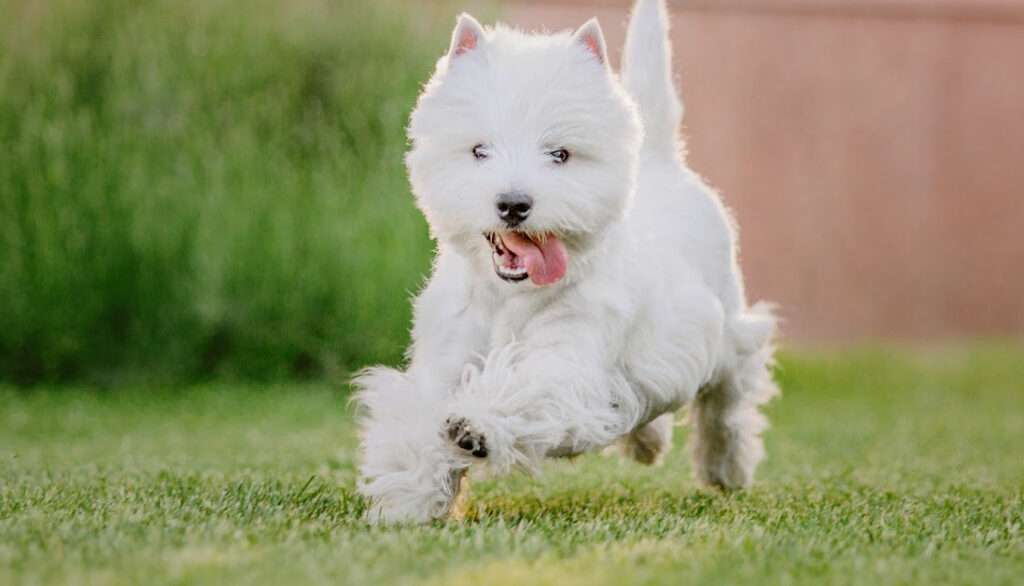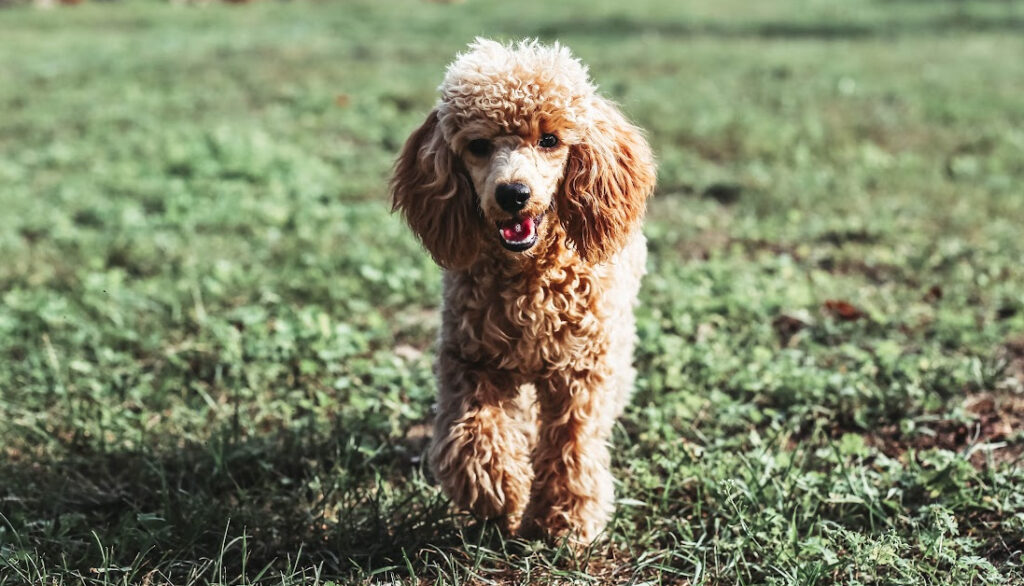Are you a fan of petite pups with a lot of brainpower? If yes, you’re in the right place! Welcome to the world of the smartest small dog breeds. In this article, I’ll be your guide in exploring the tiny Einsteins of the canine world – and trust me, they’re as fascinating as they sound!

Small dog breeds are loved for their adorable looks and spunky charm, but there’s more to them than meets the eye. Many of these miniature marvels also pack a punch when it comes to intelligence. Did you know that a dog’s intelligence is not just about tricks and obedience? It involves aspects like problem-solving abilities, learning speed, and even emotional sensitivity. Having an intelligent pup in your life can be a delightful experience, and I’ll tell you exactly why.
With intelligent small dog breeds, you’ll have a companion that’s easy to train, quick to learn, and more likely to stay out of trouble. Plus, their brainy antics will always keep you entertained. In this article, we’ll dive into the top 10 smartest small breeds, including brainy beauties like the Poodle, agile thinkers like the Shetland Sheepdog, and quick learners like the Papillon.
But, let me remind you, a brainy dog also needs the right training techniques to harness their potential. So, I’ll also share some handy tips for training these intelligent breeds and helping them become the best they can be. We’ll also explore how to choose the perfect smart small breed that matches your lifestyle.
So, let’s embark on this exciting journey together and discover the charm of the smartest small dog breeds. Remember, small in size doesn’t mean small in intelligence!

Understanding Dog Intelligence
If you’re fascinated by the capacity of small dogs to learn tricks, obey commands, and solve problems, you’re not alone! As a holistic veterinarian, I’ve observed that the secret behind their adorable antics often lies in their intelligence levels. So let’s dive deep into the factors that determine dog intelligence and the benefits of owning a small, smart pooch.
Factors Determining Intelligence in Dogs
Dog intelligence isn’t a one-size-fits-all concept. It’s influenced by a variety of elements that makes every breed unique.
- – Breed Genetics: Specific breeds are hardwired with certain skills and traits. For instance, herding breeds like the Shetland Sheepdog are known for their problem-solving abilities. Toy breeds, such as the Poodle, have been selectively bred for their companionship and tend to be quick learners.
- – Training: A well-trained dog will always appear smarter. Remember, the smartest small dog breeds are often those that have been trained consistently and with patience.
- – Socialization: Dogs that are regularly exposed to a variety of environments, situations, and people develop better cognitive skills and adaptability.
- – Health and Diet: Proper nutrition and regular vet check-ups contribute significantly to a dog’s cognitive functions.
Benefits of Owning an Intelligent Small Dog Breed
If you’re considering bringing a small, intelligent pup into your life, here are some compelling reasons why it’s an excellent idea:
- – Trainability: It’s easier to train intelligent breeds. They can quickly learn commands, tricks and are more likely to remember them.
- – Adaptability: Smart dogs adapt well to new environments and situations, making them great companions for those who travel frequently or move homes often.
- – Problem-Solving Abilities: Intelligent dogs can figure out things on their own. For example, they might learn to open doors or figure out how to fetch their toys from under the sofa.
- – Longer Lifespan: According to some studies, intelligent breeds tend to live longer, often due to their ability to avoid danger.
- – Companionship: Intelligent dogs understand and respond to human emotions, making them excellent companions.
Realizing the potential of these small furballs is truly remarkable. Remember, every dog, regardless of its breed or size, is capable of showing intelligence in its own unique way. It’s up to us as responsible pet parents to nurture it. As we journey through understanding the smartest small dog breeds, you’ll discover more about their unique traits and training tips. Let’s move on to meet these tiny geniuses of the canine world!
Top 10 Smartest Small Dog Breeds
When it comes to intelligence, size doesn’t matter in the canine world. There are numerous small dog breeds that pack a lot of brainpower in their tiny bodies! So, without further ado, here are the top 10 smartest small dog breeds.
Poodle
Beneath their curly coats, poodles are known for their exceptional intelligence. With their quick learning ability and problem-solving skills, it’s no surprise they’ve earned a place on this list.
Shetland Sheepdog
Shetland Sheepdogs, also known as Shelties, are herding dogs with highly developed problem-solving skills and a fantastic capacity to understand human commands.
Papillon
The Papillon is not only adorable but also quite intelligent. These small dogs are quick learners, eager to please, and can be trained to perform a variety of tasks.
Border Terrier
Border Terriers are intelligent, keen, and alert dogs. Besides being a natural hunter, they are also highly trainable and good at problem-solving.
Miniature Schnauzer
Miniature Schnauzers are known for their lively personalities and high intelligence. They are quick learners and adapt well to different situations.
Welsh Corgi
Corgis are not just the favorite of the Queen of England, but also renowned for their intelligence. Both the Pembroke and Cardigan Welsh Corgis are highly trainable and good problem solvers.
West Highland White Terrier
West Highland White Terriers, also known as Westies, are known for their sharp minds. They’re quick to learn and have a high desire to please their owners.
Cavalier King Charles Spaniel
These dogs are not only beautiful but also highly intelligent. Cavaliers are quick to learn and adapt to their surroundings.
Italian Greyhound
Despite their delicate appearance, Italian Greyhounds are swift, agile, and intelligent dogs. They excel in obedience training and agility courses.
Toy Fox Terrier
Last but not least, Toy Fox Terriers are highly intelligent, quick to learn, and eager to please. They can quickly pick up on commands and excel in many canine sports.
Unique Traits of Each Breed
While all these breeds are intelligent, each has unique traits that make them special. For instance, Poodles are not only brainy but also known for their hypoallergenic coats which makes them a great choice for allergy sufferers. Shelties, on the other hand, have a strong herding instinct and are known for their agility.
Papillons are known for their distinctive butterfly-like ears, hence their name which means ‘butterfly’ in French. In addition, they’re one of the most sociable small breeds, making them great companions.
Westies are fierce, bold, and love to dig. They’re also known for their cute, friendly faces and white coats. Italian Greyhounds, being sight hounds, have a strong prey drive and love to run.
Remember, each of these smartest small dog breeds brings its own unique charm and personality. So, when choosing a breed, it’s essential to consider not just their intelligence, but also whether their characteristics align with your lifestyle.
Poodle: The Brainy Beauty
When discussing smartest small dog breeds, one cannot overlook the Poodle. Often ranked among the most intelligent dog breeds, Poodles come in three sizes: standard, miniature, and toy. All Poodle varieties exhibit an exceptional degree of intelligence, but for the purpose of this article, we’ll focus on the Miniature and Toy Poodles, which fall under the small dog category.
Overview of Poodle Intelligence
Poodles are a marvel of canine intelligence. Their cognitive abilities reflect in their extraordinary problem-solving skills and their quick understanding of commands. Historically, poodles were bred as water retrievers, a job that required quick thinking and the ability to follow complex instructions. This history contributes to their sharp intellect and active minds today.
Their keen intellect isn’t just limited to understanding and executing commands. Poodles are also known for their emotional intelligence. They are incredibly tuned into their human’s moods and can often be seen trying to provide comfort when their owner is upset.
Training and Care for Poodles
Training a Poodle can be an enriching experience, given their eagerness to learn and ability to understand complex commands. However, their intelligence can also make them a bit stubborn at times, so it’s crucial to employ a combination of positive reinforcement techniques.
Firm, consistent training from a young age will ensure your Poodle grows into a well-behaved adult. Socialization is also key, as Poodles are known to be somewhat wary of strangers. Regular interaction with different people, animals, and environments can help them become well-adjusted.
When it comes to care, Poodles require a fair amount of physical and mental stimulation to stay happy and healthy. Regular exercise and interactive toys are a must to keep their active minds engaged. Owing to their dense, curly coats, they also require regular grooming.
Poodles are not just the smartest small dog breeds; they are also affectionate, energetic, and loyal companions. Their intelligence combined with their striking looks make them an undeniably appealing choice as pets. However, remember that intelligent dogs need an environment where they can thrive and use their brains, so be prepared for an active, engaging life with your Poodle. Remember, a busy Poodle is a happy Poodle!

Shetland Sheepdog: The Agile Thinker
When you think about the smartest small dog breeds, the Shetland Sheepdog, often referred to as the Sheltie, undoubtedly earns a spot on the list. Originating from the Shetland Islands of Scotland, these agile thinkers are not just cute and cuddly but also incredibly intelligent.
Overview of Shetland Sheepdog Intelligence
Shelties are renowned for their quick learning ability and problem-solving skills. Ranked as the sixth most intelligent dog breed by Stanley Coren, a professor of canine psychology, Shelties are known to understand new commands in less than five repetitions and obey the first command 95% of the time.
Shelties were initially bred for herding livestock, a task that requires both physical agility and mental acuity. This herding instinct is still strong in them, which can sometimes be seen in their protective behavior towards their human family. They are also known for their exceptional memory and can remember commands and tricks taught to them years ago.
Moreover, Shelties are known for their keen senses and alertness. They are often used as watchdogs due to their high awareness and tendency to bark at anything unusual. However, this intelligence also means that they can be a bit stubborn and independent at times.
Training and Care for Shetland Sheepdogs
Training a Sheltie can be a rewarding experience due to their eagerness to please and quick learning abilities. Here are a few tips for training your Sheltie:
- Start Early: Shelties are quick learners, so it’s best to start their training as early as possible. They can pick up commands and tricks from as young as eight weeks old.
- Use Positive Reinforcement: Reward-based training works best for Shelties. They respond well to treats, praises, and petting. Avoid harsh training methods as they can make your Sheltie anxious or fearful.
- Keep Training Sessions Short and Fun: Shelties have a good attention span but can get bored with repetitive tasks. Keep the training sessions short and varied to keep them engaged.
When it comes to care, Shelties require regular grooming due to their long, thick coat. They are also energetic dogs that need daily exercise to keep them physically and mentally stimulated. Regular vet check-ups are also essential to ensure your Sheltie stays in good health.
Remember, an intelligent dog like a Sheltie needs not just physical care but also mental stimulation. Puzzle toys, agility training, and interactive games can help keep their minds sharp. With the right care and training, your Sheltie can truly shine as one of the smartest small dog breeds.
Papillon: The Quick Learner
If you’re after a small, intelligent dog breed, you must get acquainted with the Papillon. This clever small dog type has proven to be one of the smartest small dog breeds. They are known for their distinct ‘butterfly’ ears, which gives them their name – ‘Papillon’ is French for ‘butterfly’.
Overview of Papillon Intelligence
Papillons are included in the top tier of intelligent small dog varieties. They are quick learners, known for their problem-solving abilities, and remembered for their impressive memory. The Papillon’s intelligence is on par with that of larger dog breeds, which is a significant achievement for a dog of its size.
One of the factors that sets the Papillon apart from other smart small dog species is their versatility. They excel in different areas, including obedience training, agility courses, and trick training. Their eagerness to please and their desire to engage in interactive activities make the Papillon an excellent choice for those interested in dog sports.
Training and Care for Papillons
Given their intelligence, Papillons require mental stimulation to keep them happy. The variety of training methods that work well with this smart small dog breed includes obedience commands, interactive games, and agility training. Reward-based training methods are particularly effective for Papillons.
- Consistency: This breed thrives on consistency. They respond well to clear instructions and consistent rules.
- Patient Training: Papillons are sensitive and do not respond well to harsh training methods. Instead, they thrive on patient, positive reinforcement techniques.
- Mental Stimulation: Given their high intelligence, Papillons need plenty of mental stimulation to prevent them from getting bored, which can lead to destructive behavior.
- Socialization: Early socialization with humans and other animals is crucial for Papillons. They are sociable creatures who enjoy the companionship of their human family and other pets.
Caring for a Papillon also includes regular grooming to maintain their beautiful coat. Although they do not require as much exercise as some other breeds, regular walks and playtime are necessary for their physical and mental health.
Overall, the Papillon, as one of the clever small dog types, offers an enormous amount of intelligence in a small package. Their quick learning and versatile abilities make them a delightful addition to any family willing to dedicate time to their training and care. Indeed, these tiny Einsteins of the canine world prove that size does not always dictate intelligence.

How to Train Intelligent Small Dog Breeds
Effective Training Techniques
When it comes to training the smartest small dog breeds, certain techniques tend to be more effective than others. Here are some that you can try:
- Positive Reinforcement: This technique involves rewarding your dog for good behavior, encouraging them to repeat it. Rewards can come in the form of treats, toys, praise, or anything else your dog loves.
- Clicker Training: This method uses a clicker to mark the exact moment your dog performs a desired behavior. After each click, the dog is given a treat. Over time, your dog associates the click with the positive reinforcement and learns to perform the behavior to earn a reward.
- Target Training: This technique involves teaching your dog to touch an object or area with part of their body. It’s a great way to teach complex tricks or commands.
- Shaping: This method involves training your dog to perform a complex behavior by breaking it down into smaller steps. You reward your dog for each step they complete correctly until they can perform the whole behavior.
Importance of Consistency and Patience in Training
When training the smartest small dog breeds, consistency and patience are key. Here’s why:
- Consistency: Dogs learn through repetition and consistency. If you change the command for a particular behavior or don’t consistently reward them for doing it right, they’ll become confused and the training might take longer or be less effective. Ensure everyone in the household uses the same commands and rewards for each behavior.
- Patience: Even the smartest dog breeds can’t learn everything overnight. Some commands or behaviors might take longer for your dog to learn than others. Be patient and never punish your dog for not understanding. If you find yourself getting frustrated, take a break and try again later.
Training the smartest small dog breeds can be a rewarding experience. These pups are quick learners, but they also require mental stimulation to prevent boredom. By using effective training techniques and demonstrating consistency and patience, you’ll be able to bring out the best in your clever canine companion.
Tips for Choosing the Smartest Small Dog Breed for Your Home
Selecting the right dog breed for your home is not a decision to be taken lightly. Especially when you’re looking for the smartest small dog breeds, there’s more to consider than just size and intelligence. You need to match the dog’s temperament, energy level, and intelligence with your lifestyle. So, here are some tips to help you make the best choice.
Considerations for Choosing a Dog Breed
- Temperament: While intelligence is a significant factor, the dog’s temperament should also be a major consideration. Some small dog breeds may be smart but could also be stubborn or independent, which might make training them a bit challenging.
- Energy Level: Small dog breeds vary significantly in energy levels. Some, like the Papillon, are active and require lots of exercises, while others, like the Shih Tzu, are more relaxed and require less physical activity.
- Living Conditions: Consider your living situation. For instance, if you live in an apartment, a dog breed that doesn’t bark much would be more suitable. Similarly, some breeds are more adaptable to cold or hot climates.
- Health issues: Some small dog breeds are prone to specific health issues. Be prepared to deal with these potential concerns or choose a breed with fewer health problems.
- Availability: Some dog breeds are scarce and might be difficult to find in your local area. It’s crucial to verify the availability of the breed you are considering in your locality.
Matching Dog Intelligence with Your Lifestyle
Now that you’re aware of the various factors to consider, it’s crucial to match the dog’s intelligence with your lifestyle. Here’s how:
- Consider your Time Commitment: Intelligent dogs often require mental stimulation. Do you have the time to provide training, play intelligent games, and engage in activities that challenge them mentally? If not, you might want to reconsider your decision.
- Think about Your Patience Level: Smart dogs tend to learn quickly, but they can also be stubborn. They may quickly pick up both good and bad behaviors. Hence, you must have the patience to correct any unwanted behaviors that they might learn.
- Assess Your Experience Level: If you’re a first-time dog owner, some intelligent small dog breeds might be a challenging choice. Breeds like the Poodle, Shetland Sheepdog, and Papillon are intelligent, but they might be a bit challenging for a novice dog owner to handle.
Remember, choosing the right dog breed is about finding a dog that fits seamlessly into your life and complements your lifestyle. Even the smartest small dog breeds can pose challenges if they don’t fit well with your situation.
By taking the time to thoroughly consider your options and honestly assess your lifestyle, you can find the perfect small, intelligent dog breed that will be a joy to have in your home, providing you with years of companionship, laughter, and love.
Frequently Asked Questions
Q1: What are some of the smartest small dog breeds?
A: Some of the smartest small dog breeds include the Poodle, Papillon, Shetland Sheepdog, and the Pembroke Welsh Corgi.
Q2: How is intelligence measured in dogs?
A: Intelligence in dogs is typically measured by their ability to learn new commands, solve problems, and adapt to new situations.
Q3: Are smaller dog breeds generally smarter than larger ones?
A: Not necessarily. Intelligence varies widely among dog breeds, regardless of size. However, some small breeds are known for their exceptional intelligence.
Q4: Do smart dogs require more mental stimulation?
A: Yes, smarter dogs often require more mental stimulation to keep them from becoming bored and potentially destructive. This can include puzzle toys, training, and interactive play.
Q5: Can any dog breed become smart with the right training?
A: While training can certainly help improve a dog’s skills and abilities, some breeds are naturally more inclined towards intelligence and quick learning. However, every dog is unique and can surprise you with their capabilities.
Dr. Candy, a holistic veterinarian and certified raw dog food nutrition specialist, graduated from Oklahoma State University in 2009 with a DVM and has since specialized in companion animal nutrition, advocating for species-specific diets. With a background in wildlife rehabilitation and oil spill response, she combines holistic health and conventional medicine in her unique approach to treating chronic diseases, allergies, and autoimmune conditions in pets. As the owner of a veterinary practice in Colorado and an author, Dr. Candy is dedicated to educating pet parents and improving the health and happiness of animals.




